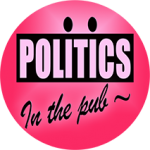DID YOU HAVE ANY IDEA? with Cassie FINDLAY from CaTV on Vimeo.
My name is Cassie Findlay and I am an archivist, working primarily with digital records.
When I saw what Julian Assange and WikiLeaks achieved with the releases last year it gave me renewed excitement about my work – a kind of ‘jolt’ – back to the core principles of our profession – that without access to documentary evidence of what our governments are doing in our names we cannot possibly have a sensible basis on which to make decisions in a healthy democracy.
What WikiLeaks has done also has been to show what I believe is a serious disconnect between current rules and practices around access to records and the tremendous shift we have seen in people’s expectations for access to information, and recognition of the great power it has to promote reform, particularly when it is shared rapidly and widely online. In Australia and in many other western countries we have lip service paid to greater openness while we know from many studies that it is more difficult than ever to succeed with applications under Freedom of Information – that efforts in the United States to declassify government information have been painfully slow – and that here in Australia we still have archives laws which apply blanket 20 or 30 year closure rules for general access to public records.
By contrast, WikiLeaks shows us how an archive can be formed directly from the affairs the records document – whether in a war zone or an embassy – and immediately serve an incredibly powerful purpose in society. It’s about turning the gatekeeper-controlled drips of information from powerful institutions to the people that we see now into a freely flowing, world transforming wave of evidence.
And amongst my peers in the archives and library world I am certainly not alone in supporting the work of WikiLeaks. I have spoken with many other archivists and librarians working here and in Europe and the United States – including senior practitioners working in universities, government and the private sector. We all support free speech, free press, and openness and accountability of government as crucial for a democratic society – and our great concern is that the struggle for these principles may be set back for years, or even decades, if the alleged whistleblower Bradley Manning is convicted or if the U.S. successfully prosecutes Julian Assange and WikiLeaks under trumped up espionage charges.
As an Australian, I find the persecution and threats specifically against Julian Assange and the abandonment of him by our government to be completely at odds with what I expect them to do for a citizen of this country – in particular one who has shown great courage and resilience in the face of forces that would crush many of us. Here we have the publisher and editor in chief of a free press organisation that has done nothing more than keep the promise that WikiLeaks makes to whistleblowers to achieve maximum impact for their material – and who continues to honour that promise. He should be defended and protected, not thrown under a bus in case we get in the way of the United States’ need for revenge.
I hope that what Julian Assange and WikiLeaks have done will trigger a new way for all of us to see the power and value of information to expose injustices and bring reform. And I hope very much that we in Australia will not allow our government to be complicit with the United States in punishing Julian Assange for opening up the archives. Thank you.

